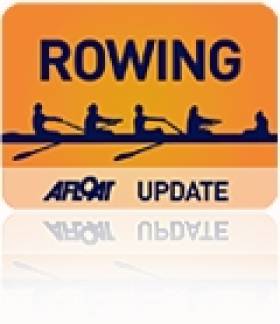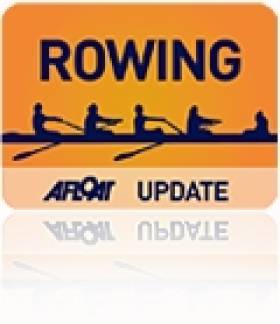Displaying items by tag: eights
Ireland Olympian Tony O'Connor to Coach New Zealand Men's Eight
#Rowing: New Zealand have chosen Tony O’Connor to coach their senior men’s eight. The 49-year-old former oarsman has been a successful coach at junior level, with the school at which he teaches, Christ’s College, Christchurch, and in the international set-up. He coached the New Zealand junior four which took silver at the World Junior Championships in 2017.
O’Connor represented Ireland at two Olympic Games (1996 and 2000), and was part of the lightweight four which finished fourth in 1996. He won gold in the lightweight pair in 2001 World Championships with Gearóid Towey. He partnered Neville Maxwell in the lightweight pair which set the world’s best time in 1994.
Rowers Get Green Light At Erne Head But Only in Eights
#ROWING: The Erne Head of the River will go ahead on Saturday at Enniskillen, but with a revised format because of the effects of the recent heavy rains. Only eights will compete and the course will run from Devenish Island against the flow to the Portora boathouse. There will be over 20 safety boats in attendance and flashing blue lights on any perceived hazard.
The event, which was a huge success last year, is set to be opening head of the river of the domestic season.
The Fermoy head of the river, scheduled for March 16th, has fallen to the weather: the high water levels have made it impossible to hold a test run and divers have identified what could be new hazards below the water.
Queen's and Portora Impress at Erne Head
Two men’s senior eights from Queen's University slotted into the first two slots at the Erne Rowing Head of the River at Enniskillen. The junior 18 quadruple of the host club, Portora, had a fine result, finishing joint eighth overall.
Erne Head of the River, Enniskillen
Overall: 1 Queen’s A men’s senior eight 19 minutes 53 seconds, 2 Queen’s B men’s senior eight 20:21, 3 University of Limerick/St Michael’s men’s senior eight 20:40, 4 Trinity men’s intermediate eight 20:59, 5 Bann men’s junior 18 eight 21:09, 6 Methodist College, Belfast men’s junior 18 eight 21:47.
Men, Eight – Senior: 1 Queen’s A 19:53, 2 Queen’s B 20:21, 3 University of Limerick/St Michael’s 20:40. Intermediate: Trinity 20:59. Novice: 1 Trinity 21:47, 2 Queen’s 22:38, 3 Queen’s B 24:51. Junior 18: 1 Bann 21:09, 2 Methody 21:47, 3 St Joseph’s 22:02. Junior 16: St Joseph’s 23:50. Masters: Belfast BC (E) 24:06.
Four/Quadruple Sculls – Senior: 1 Belfast RC (quadruple) 23:01, 2 LSC (quad) 24:45. Intermediate: 1 Trinity (quad) 22:17, 2 Queen’s (coxed four) 23:39, 3 University of Limerick (quad) 23:59. Junior 18: 1 Portora (quadruple) 22:02, 2 Commercial (quad) 22:51, 3 Portora (coxed four) 22:56. Junior 16: Bann (quad, coxed) 24:05.
Women, Eight – Senior: 1 Trinity 23:42, 2 NUIG 23:51. Intermediate: 1 Queen’s 23:45, 2 Trinity 26:02, 3 Methody 26:16. Novice: 1 Queen’s 25:07, 2 Trinity A 26:29, 3 Trinity B 26:40. Junior 18: 1 St Michael’s 24:41, 2 Portora A 27:24. Masters: Belfast BC (D) 25:39
Four/Quadruple – Senior: 1 Portora (quadruple) 24:32, 2 Trinity (coxed four) 27:28, 3 Garda 28:11.
Click this link for Irish Rowing detailsClick this link for the Latest Rowing News































































